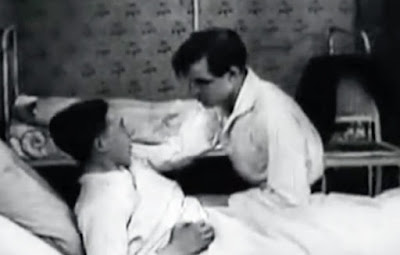
There is only one hopeful scene in “Different from the Others,” a silent picture from 1919 that is widely considered the first feature film about gay love.
In it, a gaunt, handsome man plays the piano in his Berlin drawing room. He is Paul Körner, a violin virtuoso, and, in his silk housecoat, surrounded by heavy drapery and Grecian statuettes, he appears to live a life that is resplendent but lonely.
Then an unlikely event sets him on a new course: a young music student has come calling. Kurt Sivers, round-faced, excitable, has seen all of Paul’s concerts, and he approaches the master nervously, hands clutched to his chest. “My deepest wish would come true if you were willing to be my teacher!” an intertitle reads. Paul responds by offering Kurt his great open palm.
Their alliance, a perfect meeting of passion and pedagogy, seems indivisibly strong—but, by the end of the film, we have learned that it is otherwise, owing to the self-hatred and cruelty that homosexual love can inspire, even in Weimar Berlin. READ MORE



